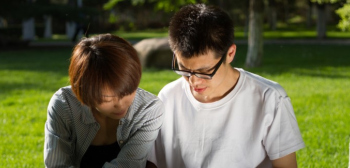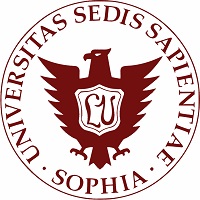- #951-1000 QS Global World Ranking
- Private not for ProfitStatus
- HighResearch Output
- 12,844Total Students
- 1,070Faculty
- 1,297Int'l Students
The University’s position in the current QS World University Rankings.
Whether the University is funded by the government of that country or state, or funded by private donations.
The research intensity of the University, based on the number of papers output relative to the University’s size.
The number of full time equivalent students enrolled at the University.
The number of full time equivalent teaching staff employed by the University.
The number of full time equivalent international students enrolled at the University.
Sophia University
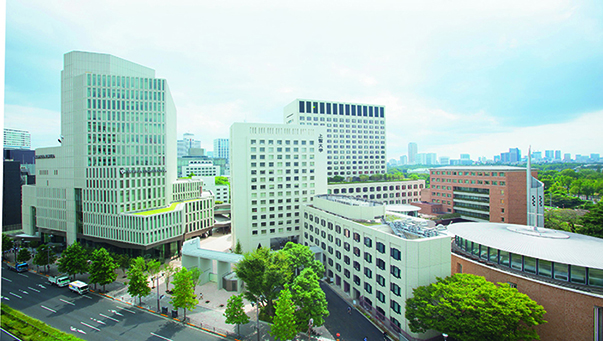

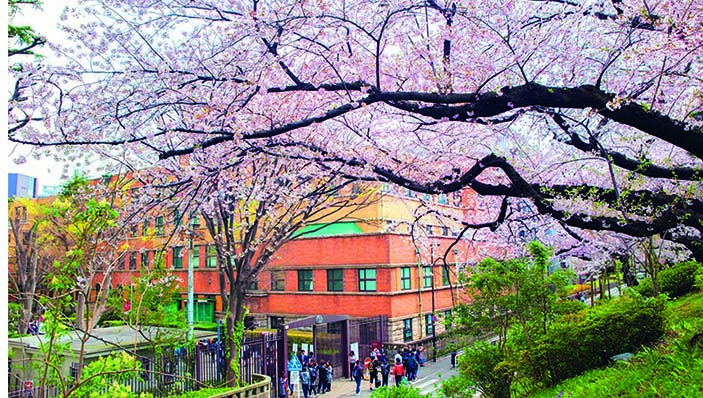

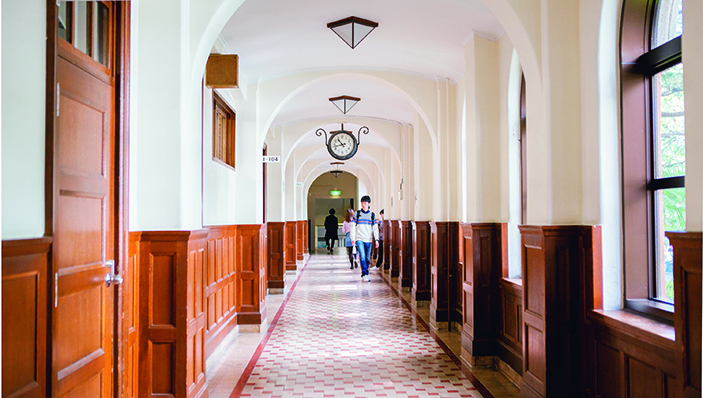
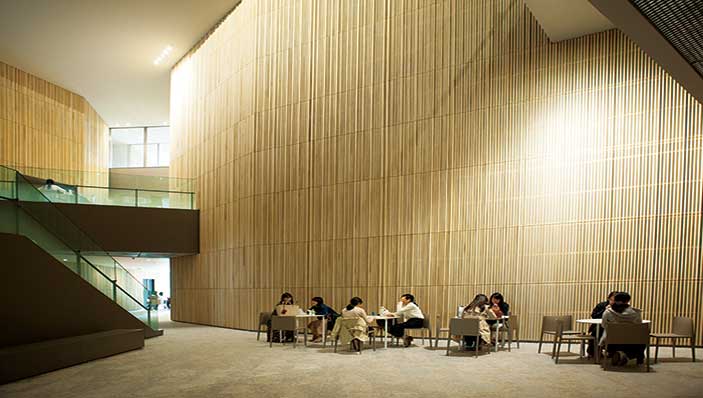
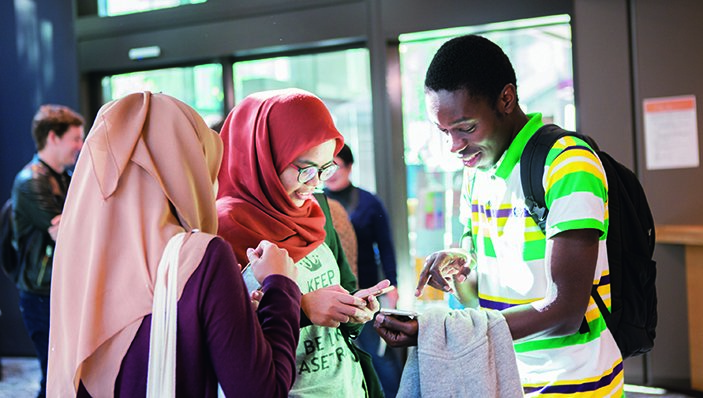
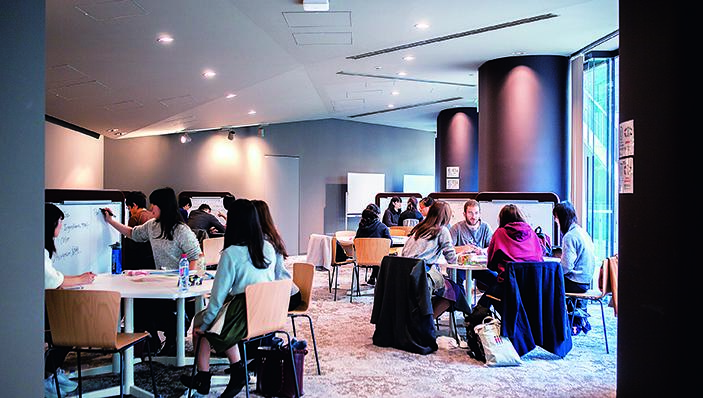













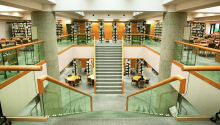




About
Sophia University (“Jochi Daigaku” in Japanese) was founded in 1913 by the Jesuits, a Catholic order renowned for excellence in education. From the beginning, the university founders stressed an internationally oriented curriculum and rigorous training in foreign languages. Sophia soon established itself as a leading institution for scholarship on foreign languages and literature in Japan. Today Sophia University is a major teaching and research university in the humanities, social sciences and natural sciences with 13,800 students and teaching staff of 1,400 members, embracing over 1,500 international students studying on one campus from 85 countries. This approach yields significant benefits for the University’s programs by deepening educational mobility, collaboration, and specialization. Students can study business and economics, science and technology, and environmental studies, all strengths of Japan, in English as well as Japanese studies that Sophia boasts a long tradition. Variety of disciplines are available in English while the main language of instruction is Japanese (please see “undergraduate” and “graduate” for the medium language of instruction).
Sophia University has been selected as one of 37 universities to receive funding from the Ministry of Education, Culture, Sports, Science and Technology (MEXT) for internationalization effort called the "Top Global University Project."
For more details, please visit the official website: www.sophia.ac.jp. Up to date pictures of campus are also available on facebook (Sophia University) and instagram (sophiauniversity).
The Campus (YOTSUYA Campus) is located in the heart of Tokyo a megacity, yet surrounded by nature and greenery. Students can enjoy all the benefits of its state-of-the-art technology, facilities, and infrastructure.
The university library is a core facility for academic learning, education and research. It offers a multifaceted collection of information and data from various database, books, periodicals, audio-visual material and major newspapers in and outside Japan.
Book volumes ;1,083,388(Books), 11,842(Journal Titles)
With 17 floors in the 75m tall building, Sophia Tower serves as a new symbol for Sophia University. It has a large classroom for 733 seats that can also be used as a Hall. And the Center for Language Education and Research, responsible for language education programs for the whole university are located in this building;
Language Learning Commons (LLC)
Language Learning Commons (LLC) is located on the first floor of Building 6. We invite you to participate in the following program to maximize your learning and develop your Japanese language proficiency and accuracy.
Campus dining hall and cafeterias are all self-service;
Bldg. 2 Student Dining Hall
Bldg. 2 Lounge (SUBWAY)
S-CAFÉ
Bldg.11 Lounge
Halal Deli and Café
Swimming Pool (B1F, Gymnasium)
At the basement of the Gymnasium, there is a heated pool open throughout the year.
By offering an environment on a single campus that brings together students and faculty members from different cultural, linguistic, and religious backgrounds, the campus functions as a microcosm of global society.
Various student supports are available at Sophia.
- Health Center : It offers physical and mental health consultation, health and nutrition guidance, and emergency treatment for injuries and sudden illnesses.
- Counseling Center: It is a place where students can talk to or seek advice from professional counselors about their concerns or the problems that trouble them during their daily life.
- Extracurricular Activities: Sophia has over 300 student organizations and clubs covering variety of t sports, purposes, and cultural interests.
- SSIC (Sophia Student Integration Commons): This space offers 1)exchanges among students 2) Peer consulting and opening 3) A rest station for students with disabilities. In the future, SSIC aims at becoming an exchange hub where student can come at all times and meet different kind of people. As of May 2018, SSIC is holding events only but we are looking forward to different ideas from students.
- Sophia Nursery: Partnered with an expert cooperation, Sophia established this nursery to meet students’ needs and assist students with taking care of your children while pursuing studies and research at Sophia.
- Prayer room: Muslim students, faculty and staff or those who need to pray based on background of cultures and religions can use this room at their convenience.
- Support for Students with Special Needs: Sophia would provide students with special needs with reasonable accommodation based on "Basic Principles for Academic Support for Students with Special Needs at Sophia University".
- Housing:Since Sophia is located right in front of the station, in the center of Tokyo, the campus does not hold a housing, however, students have a couple of options for housings where many of international students live and join events inside the dormitory. For more information, please visit: https://www.sophia.ac.jp/eng/studentlife/index.html
There are various admissions to apply for Sophia University.
In general, the admission decision is made based on document screening for English-taught programs. No written exam or interview is required.
We offer bachelor’s degree, master’s degree, doctoral degree, non-degree (taking credits for a semester or two), and exchange programs. The application schedule and materials to be submitted vary depending on each program. Please refer to our website for the details.
For the English-taught programs, no Japanese skill is needed to apply, enroll, and graduate with all support in English whereas students have chances to learn Japanese language while focusing on your major studies.
Sophia University’s scholarships are all grant with various types for international students. Please refer to our website for the details.
Overview: Of the humanities and social sciences graduates (about 2500), 84% went to work and 6% went on to graduate school. Of the science and technology graduates (about 400), 43% went to work and 54% went to graduate school.
Among undergraduates, the employment rate for applicants is 97.7%. There is a lot of support for current students utilizing the network of alumni, such as seminars by company. Support
Career Center: The Sophia Career Center supports students' job-seeking activities and gives them tips to find career opportunities.
Students have access to the following programs offered by the Career Center.
- Individual counseling service
- Job fair
- Job search workshops
- Sophia University Job Search Guide for International Students
Where Students Go (from English-taught programs):
- Public Services (Japanese governmental ministries)
- Trade and Industry
- Banking and Finance
- Media and Arts
- Communications and Technology
- Graduate School
Sophia University Alumni Association (SUAA) : Sophia University has approximately 140,000 alumni; 3,000 students graduate every year. The Sophia University Alumni Association (SUAA or "Sophia-kai" in Japanese) promotes friendship among Sophia's alumni and contributes to Sophia University's developing, setting and accomplishing further goals.
About
Sophia University (“Jochi Daigaku” in Japanese) was founded in 1913 by the Jesuits, a Catholic order renowned for excellence in education. From the beginning, the university founders stressed an internationally oriented curriculum and rigorous training in foreign languages. Sophia soon established itself as a leading institution for scholarship on foreign languages and literature in Japan. Today Sophia University is a major teaching and research university in the humanities, social sciences and natural sciences with 13,800 students and teaching staff of 1,400 members, embracing over 1,500 international students studying on one campus from 85 countries. This approach yields significant benefits for the University’s programs by deepening educational mobility, collaboration, and specialization. Students can study business and economics, science and technology, and environmental studies, all strengths of Japan, in English as well as Japanese studies that Sophia boasts a long tradition. Variety of disciplines are available in English while the main language of instruction is Japanese (please see “undergraduate” and “graduate” for the medium language of instruction).
Sophia University has been selected as one of 37 universities to receive funding from the Ministry of Education, Culture, Sports, Science and Technology (MEXT) for internationalization effort called the "Top Global University Project."
For more details, please visit the official website: www.sophia.ac.jp. Up to date pictures of campus are also available on facebook (Sophia University) and instagram (sophiauniversity).
The Campus (YOTSUYA Campus) is located in the heart of Tokyo a megacity, yet surrounded by nature and greenery. Students can enjoy all the benefits of its state-of-the-art technology, facilities, and infrastructure.
The university library is a core facility for academic learning, education and research. It offers a multifaceted collection of information and data from various database, books, periodicals, audio-visual material and major newspapers in and outside Japan.
Book volumes ;1,083,388(Books), 11,842(Journal Titles)
With 17 floors in the 75m tall building, Sophia Tower serves as a new symbol for Sophia University. It has a large classroom for 733 seats that can also be used as a Hall. And the Center for Language Education and Research, responsible for language education programs for the whole university are located in this building;
Language Learning Commons (LLC)
Language Learning Commons (LLC) is located on the first floor of Building 6. We invite you to participate in the following program to maximize your learning and develop your Japanese language proficiency and accuracy.
Campus dining hall and cafeterias are all self-service;
Bldg. 2 Student Dining Hall
Bldg. 2 Lounge (SUBWAY)
S-CAFÉ
Bldg.11 Lounge
Halal Deli and Café
Swimming Pool (B1F, Gymnasium)
At the basement of the Gymnasium, there is a heated pool open throughout the year.
By offering an environment on a single campus that brings together students and faculty members from different cultural, linguistic, and religious backgrounds, the campus functions as a microcosm of global society.
Various student supports are available at Sophia.
- Health Center : It offers physical and mental health consultation, health and nutrition guidance, and emergency treatment for injuries and sudden illnesses.
- Counseling Center: It is a place where students can talk to or seek advice from professional counselors about their concerns or the problems that trouble them during their daily life.
- Extracurricular Activities: Sophia has over 300 student organizations and clubs covering variety of t sports, purposes, and cultural interests.
- SSIC (Sophia Student Integration Commons): This space offers 1)exchanges among students 2) Peer consulting and opening 3) A rest station for students with disabilities. In the future, SSIC aims at becoming an exchange hub where student can come at all times and meet different kind of people. As of May 2018, SSIC is holding events only but we are looking forward to different ideas from students.
- Sophia Nursery: Partnered with an expert cooperation, Sophia established this nursery to meet students’ needs and assist students with taking care of your children while pursuing studies and research at Sophia.
- Prayer room: Muslim students, faculty and staff or those who need to pray based on background of cultures and religions can use this room at their convenience.
- Support for Students with Special Needs: Sophia would provide students with special needs with reasonable accommodation based on "Basic Principles for Academic Support for Students with Special Needs at Sophia University".
- Housing:Since Sophia is located right in front of the station, in the center of Tokyo, the campus does not hold a housing, however, students have a couple of options for housings where many of international students live and join events inside the dormitory. For more information, please visit: https://www.sophia.ac.jp/eng/studentlife/index.html
There are various admissions to apply for Sophia University.
In general, the admission decision is made based on document screening for English-taught programs. No written exam or interview is required.
We offer bachelor’s degree, master’s degree, doctoral degree, non-degree (taking credits for a semester or two), and exchange programs. The application schedule and materials to be submitted vary depending on each program. Please refer to our website for the details.
For the English-taught programs, no Japanese skill is needed to apply, enroll, and graduate with all support in English whereas students have chances to learn Japanese language while focusing on your major studies.
Sophia University’s scholarships are all grant with various types for international students. Please refer to our website for the details.
Overview: Of the humanities and social sciences graduates (about 2500), 84% went to work and 6% went on to graduate school. Of the science and technology graduates (about 400), 43% went to work and 54% went to graduate school.
Among undergraduates, the employment rate for applicants is 97.7%. There is a lot of support for current students utilizing the network of alumni, such as seminars by company. Support
Career Center: The Sophia Career Center supports students' job-seeking activities and gives them tips to find career opportunities.
Students have access to the following programs offered by the Career Center.
- Individual counseling service
- Job fair
- Job search workshops
- Sophia University Job Search Guide for International Students
Where Students Go (from English-taught programs):
- Public Services (Japanese governmental ministries)
- Trade and Industry
- Banking and Finance
- Media and Arts
- Communications and Technology
- Graduate School
Sophia University Alumni Association (SUAA) : Sophia University has approximately 140,000 alumni; 3,000 students graduate every year. The Sophia University Alumni Association (SUAA or "Sophia-kai" in Japanese) promotes friendship among Sophia's alumni and contributes to Sophia University's developing, setting and accomplishing further goals.
Available programs
University highlights
- 2018#701-750
- 2019#751-800
- 2020#801-1000
- 2021#801-1000
- 2022#801-1000
- 2023#801-1000
- 2024#901-950
- 2025#951-1000
- 2026#951-1000
Campus locations
Main campus,
7-1 Kioi-cho , Tokyo , Tokyo , Japan , 102-8554
Related content

7 Reasons to Study a Degree…
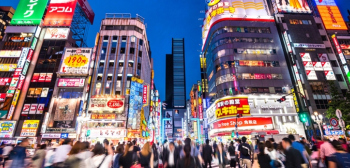
13 Reasons Why You'll L…
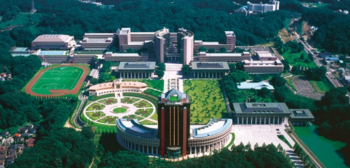
Top Universities in Asia for…
